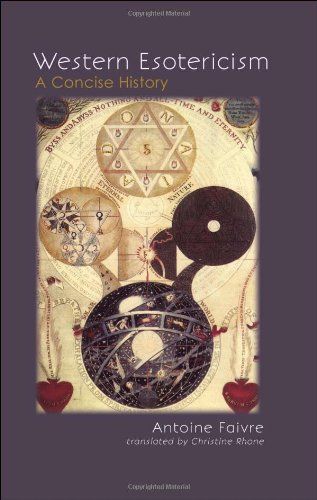
Western Esotericism A Concise History
An overview of Western esoteric currents since late antiquity, with an emphasis on the last six centuries. Widely received in France, this brief, comprehensive introduction to Western esotericism by the founder of the field is at last available in English. A historical and pedagogical guide, the book is written primarily for students and novices. In clear, precise language, author Antoine Faivre provides an overview of Western esoteric currents since late antiquity. The bulk of the book is laid out chronologically, from ancient and medieval sources (Alexandrian Hermetism, Gnosticism, Neoplatonism), through the Renaissance up to the present time. Its coverage includes spiritual alchemy, Jewish and Christian Kabbalah, Christian theosophy, Rosicrucianism, Illuminism, “mystical” Freemasonry, the “occultist” current, Theosophical and Anthroposophical Societies, the Traditionalist School, and “esotericism” in contemporary initiatic societies and in New Religious Movements. Faivre explores how these currents are connected, and refers to where they appear in art and literature. The book concludes with an annotated bibliography, which makes it an essential resource for beginners and scholars alike. “A characteristically erudite, sweeping brief survey of the field of Western esotericism, at once accessible and bristling with details. This is a valuable overview, from the inimitable perspective of the field’s founder, for those who wish to delve into this fascinating and thriving area of contemporary scholarship.” — Arthur Versluis, author of Restoring Paradise, Wisdom’s Children, and Magic and Mysticism “The classic survey of Western esotericism by the most knowledgeable and influential scholar of his generation is now finally accessible to English readers, in an updated edition that takes account of current developments. This small but precious volume will be indispensable for anybody who wishes to be well informed about the historical backgrounds and development of esoteric currents from antiquity to the present.” — Wouter J. Hanegraaff, University of Amsterdam